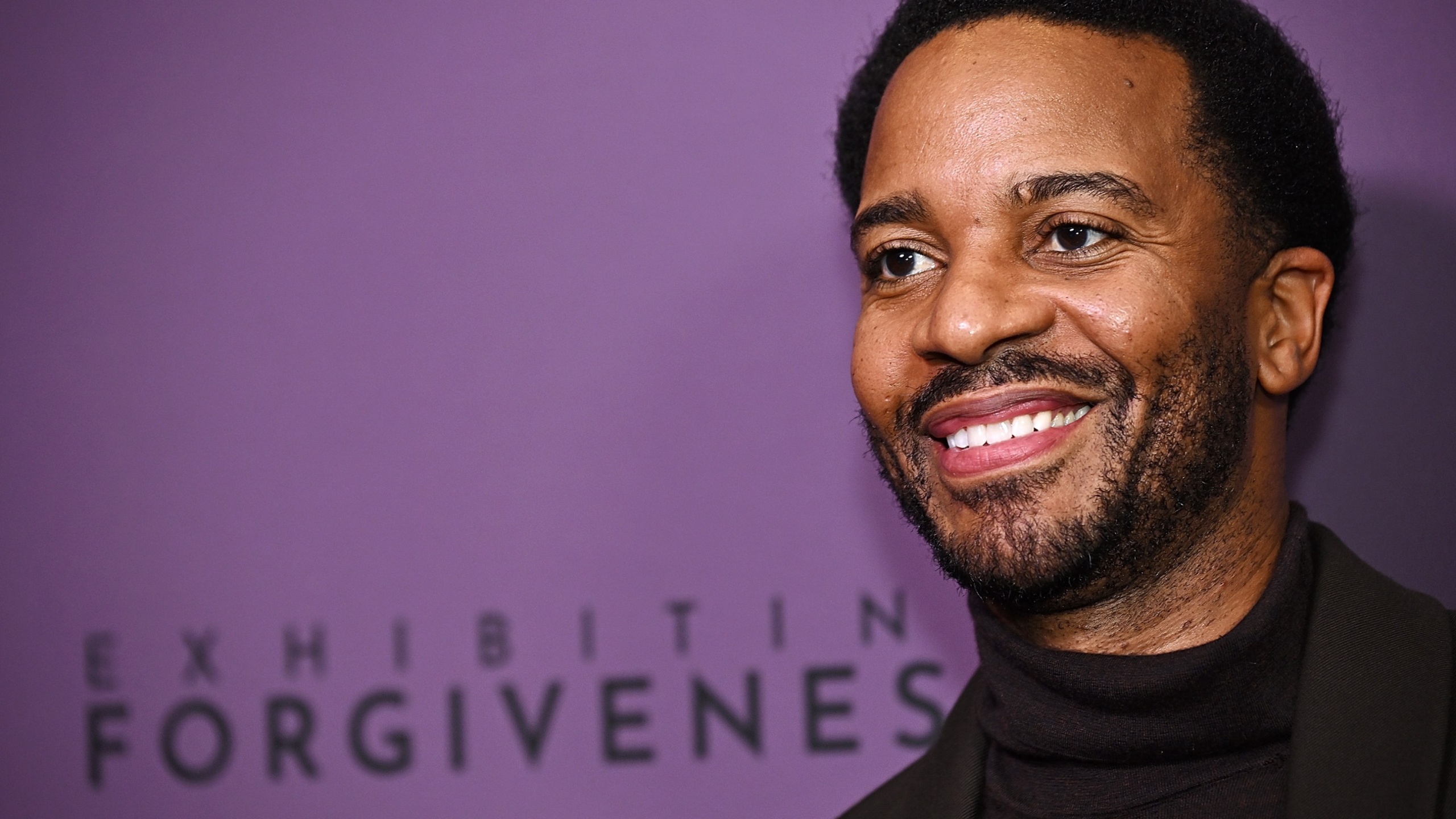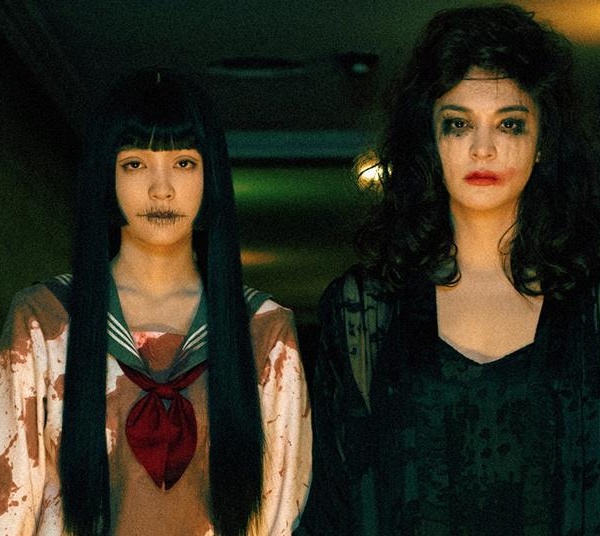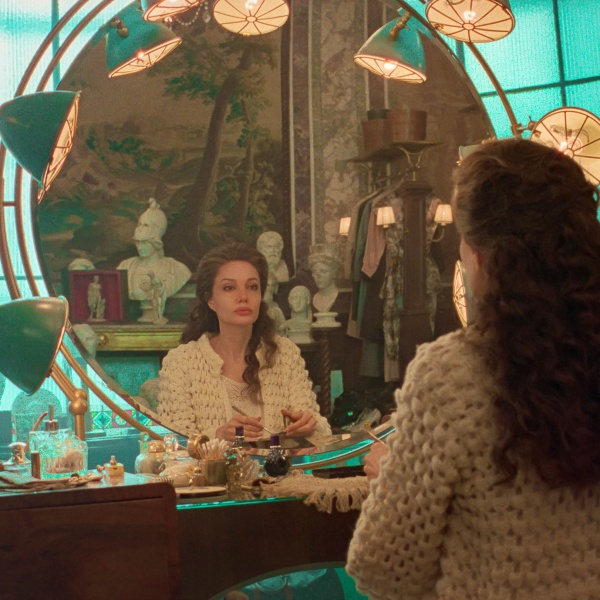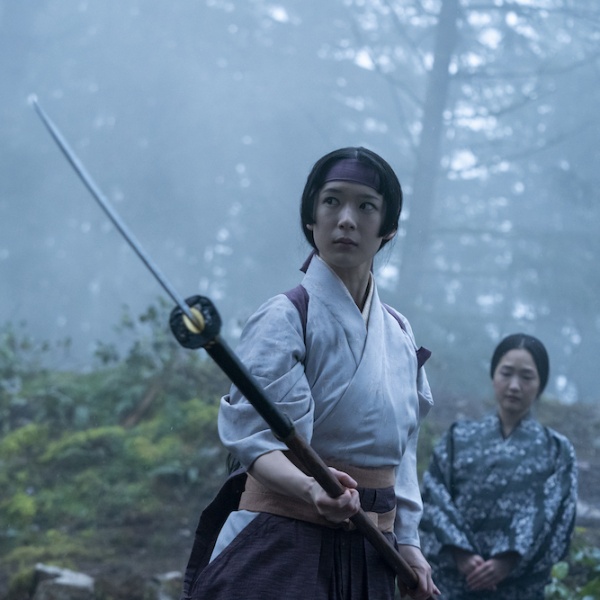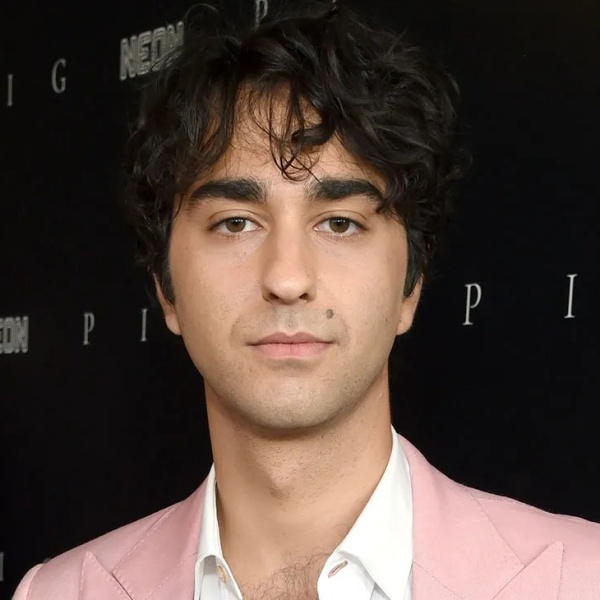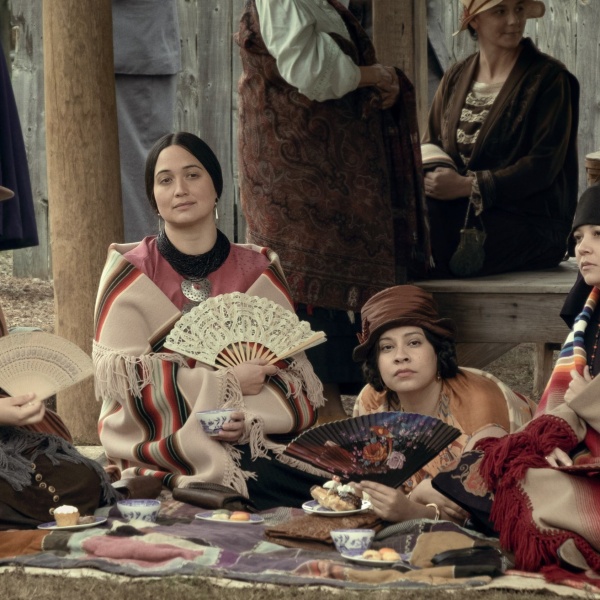“Challenge” is a word that comes up a lot when talking to André Holland about his new film “Exhibiting Forgiveness.” It was a challenge learning how to paint at a level that would convince keen eyes he was a fitting surrogate for artist Titus Kaphar, who mined heavily from his own life to write and direct the Sundance premiere serving as his feature debut. It was a challenge digging deep into his emotions to play a painter dealing with the turmoil of his estranged father reentering his life, especially as Holland was in the process of saying goodbye to his own father. It was even a challenge getting cast as lead Tarrell in the first place, according to the actor.
“[Titus] said from the beginning, ‘There are other people who are interested, and there are other people who the powers that be are excited about, for maybe financial reasons or whatever — you know how these things work — but you’re the person that I want to play the part,” said Holland to IndieWire over Zoom. “So it took a little bit of maneuvering along the way, but yeah, I was happy to jump in. I was grateful to be invited.”
Though he’s developed enough of a winning track record for fans to feel comfort knowing any project Holland is in is likely of quality (his breakout film was Best Picture winner “Moonlight” after all,) he said “Sometimes there’s a perception that ‘Oh, he’s in a movie, so everybody must be wanting to work with him.’ And I am grateful for the people who do, but it’s not nor has it ever been a deluge of every director wants to work with me, and I’m just sitting back picking who I want to work with. That’s not how it is to be an actor.”
Holland considers himself lucky to have worked with acclaimed directors like Barry Jenkins, Ava DuVernay, Steven Soderbergh, and Damien Chazelle, and says “I’d run through a wall to work with them again. I’ll do anything that they ask me to do,” but at the end of the day “I like to work with people who want to work with me. That’s the truth. Somebody who’s like ‘Man, I really see your talent and I think I want to invest in you, and I want to be in a room with you,’” he said. “Normally, that makes me want to be in a room with them. And I wish that happened more often, if I’m honest.”

The way in which he was courted by Kaphar more than satiated that desire. “When I first went to meet Titus in New Haven, I walked into his studio and there was a painting of a house. It was partially done. It was a painting of the Douglas Street house, which is in the movie, and he’s like, ‘What do you think about that?’ I look over and in the bottom right corner, there’s me,” said Holland. “This is before I had agreed to do the movie. We hadn’t done anything, we were just meeting to discuss it, and he painted me into the painting, and I was like ‘What?’ Either that is the best sales pitch I have ever seen, or he really is trying to imagine me in this world in a very considered way.”
Talking to the budding director, he could tell that Kaphar had a fully realized vision for what he thought Holland could bring to the film. “Titus being Titus, I think he probably watched every single thing I’ve ever done,” said the actor. “He was referencing things that were 15 years ago and things that I didn’t think anybody had seen. He was like, ‘I found a bootleg of this play that you were in off-Broadway 12 years ago, and can you tell me about that one scene?’”
Holland added, “It was clear to me that Titus, this was so personal to him, a story that he really needed to tell as opposed to sometimes you get things and people are like, ‘Oh, I got a cool idea of something that people might like’ or ‘This might hit.’ But I like art that is screaming to exist, and this felt like one of those things.”
Though he admits, “I’m a bit of a glutton, I guess, for punishment or challenges,” Holland did have serious concerns about taking on the the role of Tarrell, despite his deep belief in Kaphar. “I was also going through a difficult time with my own father at that moment, so I really didn’t know if I could do it or if it was safe for me to do it, just in terms of my own mental wellbeing,” he said. “But it also felt healing in a way to have a place to put all that I was feeling.” Similar to his character, Holland kept the personal difficulties he was going through close to his chest, but still, working with Kaphar, “we talked a lot about fathers of course, and about art, and about relationships. We really opened up to each other, and I think without me saying, ‘Hey man, I’m nervous about doing this,’ he understood that just from our conversations.”

Mental health was a priority on the “Exhibiting Forgiveness” set, with the director calling for breaks after shooting takes of emotionally raw scenes opposite co-stars John Earl Jelks and Aunjanue Ellis-Taylor, who play his parents. “I ain’t going to lie. It was a heavy one. It was a heavy lift. But sometimes I feel like that’s why art can be so dope. It’ll give you things that you don’t even know you need,” said Holland. “I didn’t know I needed a place to examine all these feelings that I was having and then along comes this movie that’s the perfect vehicle for me to just throw myself into it.”
Having familiar faces like Ellis-Taylor and Jelks present was rewarding as well. “When you have a safe container, an actor you love and want to work with, you can push each other and challenge each other in cool ways,” said Holland. “When it came to the scenes between us, we didn’t really have to talk too much because there’s this understanding of ‘All right, we’re about to do this, let’s do it.’ And then it’s hard to explain unless you’re in it, but the velocity with which Aunjanue sends the ball my way, and it’s like ‘Ok, well then I gotta send it back to you.’ That’s one of the best parts about it, is that you get to spar with some great people who you know love you. And we know we’re going to support each other, but we’re also going to challenge each other.”
The actor recalls one pivotal scene opposite Ellis-Taylor at a park bench, where their characters debate Bible scripture. “We were doing a good job and then on one take, there’s a line I say to her which is, ‘Why did you leave me alone with him?’ And that wasn’t a line that was in the script, I just put it in, and I could see it hit her.” Holland paused in a way where one could see the moment replay behind his eyes. “Man, she’s so special,” he said with deep reverence.
Considering how the film was operating as an almost therapeutic practice for Holland and Kaphar, it made sense that Holland connected with Tarrell’s inner child embodied by actor Ian Foreman. “We weren’t trying to make super, super conscious choices around ‘Ok, let’s mimic, let’s do this, share this gesture,’ it was more about the essence of the person, and obviously it was on me to get to know him and see what he’s bringing, and then try and hold some of that essence within me in my work, which is always a fun challenge,” said the star. “In this case, it was easy because Ian is amazing. He’s such an amazing young actor, and ironically, we found that we actually are both from Alabama, not far from each other at all.” The pair bonded over their love of college football, even though Holland is an Alabama fan, and Foreman an Auburn fan, and that enthusiasm actually was absorbed into Holland’s conception of their shared character. “When [Ian] starts talking about football, you see him light up in this way, excitement, and so I tried to think ‘Oh yeah, within Tarrell, who I’m playing, with all that difficulty, and the angst, and the sadness, and all those things, there’s still within him this little boy with this big bright smile who’s longing to come out.’”

“Exhibiting Forgiveness” also stars Oscar-nominated actress and Grammy-winning musician Andra Day, who plays Tarrell’s wife, a fellow creative. Though Holland was privy to her many talents, their collaboration gave him an even deeper appreciation of the overlap between her artistic practices. Upon hearing “Bricks,” the original song she co-wrote with “Exhibiting Forgiveness” composer Jherek Bischoff, he remembered a day of rehearsals where he, Kaphar, Jelks, and Day were going deep on relationships. “That song, part of it came out of the conversation that we were having. So she’s so brilliant that she’s in this conversation with us talking about these things, very present, and at the same time she’s composing, she’s writing in her mind. I was like, ‘Wow, I don’t know what it’s like to be able to do that,’” he said.
Holland is currently expanding upon his artistry in a different way though as a Masters student at Harvard Divinity School. “I’m a bit of a nerd and I have always wanted to continue learning,” said the actor of his reasoning for entering the Religion and Public Life program. “It’s been an astounding experience, and to be clear, it’s the academic study of religion that you sit in, and we’re considering how, through the academic study of religion, you might be able to do work that can move us toward a more peaceful world. So I’m interested in how that study can impact my work as a performer, as an artist, and how we might be able to make a bigger impact in the world through art.”
A film like “Exhibiting Forgiveness” certainly overlaps with everything he has been thinking about academically, as it is partially about how “forgiveness is a bespoke thing. It can look different for everybody,” said Holland. “My idea about forgiveness was you have to forgive, period. Turn the other cheek and all of that stuff, which maybe has its place, but that it’s possible to forgive and also take care of yourself at the same time. And also, I love that within all of that, within all of the drama, there’s still this little piece of hope that I feel when I watch it. and I think people are responding to that, despite all the struggles, despite all the difficulty, all the pain, and the heartache, and heartbreak, that there’s still hope. That is especially important right now.”
For “Exhibiting Forgiveness” to hopefully find an audience in theaters would not just be an opportunity for some communicative healing, but a statement that more films like it have a right to exist. “I have a production company [Harper Road Films], and we’re making things, and one of the things I hear all the time is ‘Well, it’s going to be difficult for people to invest in these Black dramas,’ or these kinds of movies, or that kind of work because they don’t make money or people don’t show up,” said Holland. “So I just hope that people really turn out, man, so that [we get more] stuff like this, and not give people the excuse of ‘Well, we can’t do it because the last one didn’t make money, or whatever.’ There are audiences who want this kind of story.”
“Exhibiting Forgiveness,” a Roadside Attractions release, is now in theaters nationwide.
